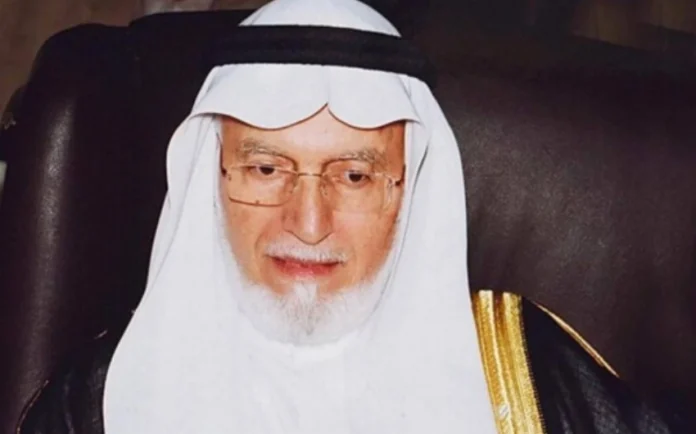– Abdullah Manham
On Sunday, October 12, 2025, the Muslim world bid farewell to one of its most respected and beloved leaders, Dr. Abdullah Omar Naseef. A recipient of the prestigious King Faisal Prize, Dr. Naseef was a renowned academic, erudite scholar, and global Islamic figure whose legacy spanned education, interfaith dialogue, and public service. He passed away in Jeddah at the age of 86.
Dr. Naseef’s career was marked by distinction and dedication. He served as President of King Abdulaziz University (KAAU), Secretary-General of the Muslim World League (Rabitatul Aalamil Islami), and Vice President of the Saudi Shura Council. His contributions to Islamic education and international cooperation earned him global recognition, yet he remained a man of humility, warmth, and accessibility.
A Personal Reflection
In 1978, when I joined KAAU for higher studies in Arabic, Dr. Naseef was at the helm. He was deeply respected by students, faculty, and staff – not only for his leadership and scholarship but for his simplicity and cordial demeanour. Though a geologist by training, with a PhD from the University of Leeds, he was equally revered for his knowledge of Islamic studies.
I owe my admission to the Arabic Language Institute in Makkah – then a branch of KAAU – to his kindness. Alongside me was the late Ali Hasan Moulavi Vanimel, and our applications were supported by TK Ibrahim Saheb from Toronto. Brother Jamal Alwaye joined the Engineering College in Jeddah, with his application forwarded by Dr. F.R. Faridi.
Dr. Naseef’s presence was felt throughout our university years. His sister, Fathima Naseef, directed the Girls College, and his brother, Mohammed Naseef, headed student affairs at a later period. Their family was among the most respected in Jeddah – legend has it that Dr. Naseef’s grandfather handed over the keys of Jeddah to King Abdul Aziz upon the founding of the Kingdom.
A Leader Among Scouts
Dr. Naseef joined the Saudi Arabian Boy Scouts Association in 1956 and later became its Chief Scout. I had the privilege of attending several scout camps under his leadership, alongside friends like Dr. Hussain Madavoor and Engineer Jamal Alwaye. These camps, held in remote areas, were rich in life skills and leadership training. On one memorable Friday, far from any mosque, Dr. Naseef led the Jumua prayer and delivered the khutba—his soft-spoken voice and Quranic recitation left a lasting impact.
Our campus, then located near the Holy Kaaba in Aziziya, Makkah, was a branch of KAAU. Dr. Naseef’s visits to the Makkah camp were cherished occasions. In 1981, a royal decree transformed the Sharia College in Makkah into Umm al-Qura University, marking a new chapter in Islamic education.
A Visionary Educator
Dr. Naseef transformed King Abdulaziz University into a hub of Islamic research and intellectual refuge. He welcomed scholars facing persecution in Egypt, Syria, Palestine, Afghanistan, and beyond. Eminent figures such as F.R. Faridi, Najathullah Siddiqi, Mohammed Qutb, Shaikh Sharawi, Abdullah Azzam, Abdul Rahman Barood, Sayid Sabiq, Muhammad Ali Sabooni, Abdussathar Seerat and many others found a home at KAAU.
He established research centres focused on Islamic economics, Muslim minorities, and Quranic science. His vision extended to opening admissions for foreign students, resulting in a vibrant, multicultural campus. Scholarships covered tuition, housing, and even pocket money – an extraordinary gesture of inclusion and support.
Global Leadership and Legacy
Appointed Secretary-General of the Muslim World League in 1983, Dr. Naseef led with foresight and compassion. His tenure saw the organization expand its global reach, supporting Muslim communities in education, healthcare, and social development. He was a staunch advocate for Muslim minorities and a pioneer in interfaith dialogue.
Later, as Vice President of the Shura Council, he contributed to governance and public policy with wisdom and integrity. In 1991, he received the King Faisal Prize for Service to Islam, honouring his efforts to promote balanced Islamic thought in a world rife with misunderstanding.
Dr. Naseef’s influence extended far beyond Saudi Arabia. He co-founded Dar Al-Islam in New Mexico, the Islamic College in Chicago, and the Islamic Academy in Cambridge. He served as Vice President of the International Islamic University in Islamabad and chaired institutions in Geneva, Sydney, Frankfurt, Chittagong, Bangladesh, and Niger.
He also led the International Union of Muslim Scouts, served on the World Scout Committee, and was a board member of the Saudi Arabian Scout Association. His charitable work continued through the Abdullah bin Omar Naseef Foundation.
A Gentle Giant
Despite his towering achievements, Dr. Naseef remained approachable, soft-spoken, and ever-smiling. His absence from media in recent years was likely due to age-related health issues, but his legacy endured quietly in the hearts of those he touched.
A former Saudi official who shared news of his passing wrote to me, “Our respected father has breathed his last.” Such was the reverence he inspired. He was a man of sublime character, whose presence left an indelible mark on all who met him.
May Allah forgive him and grant him eternal peace and happiness.




